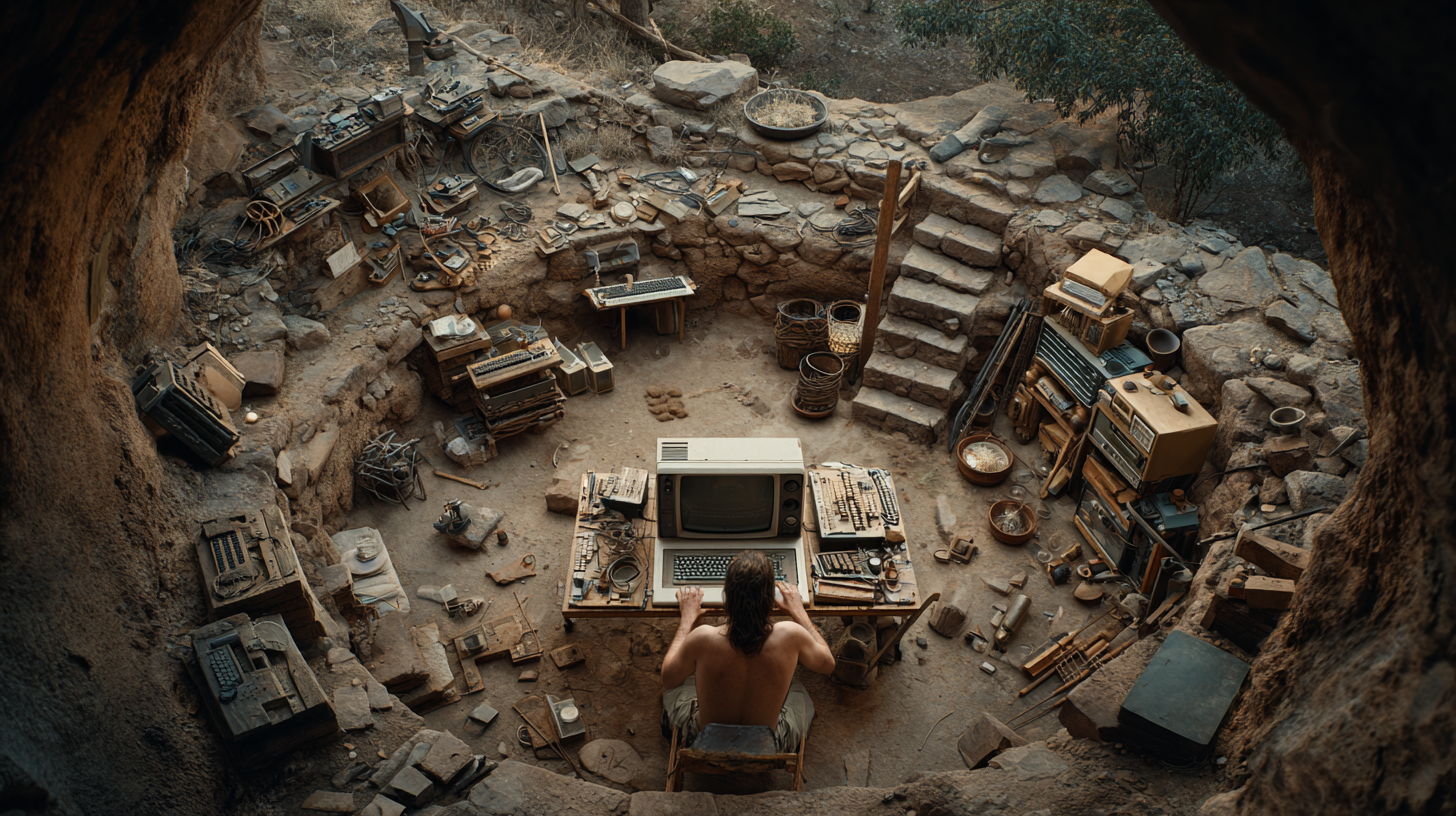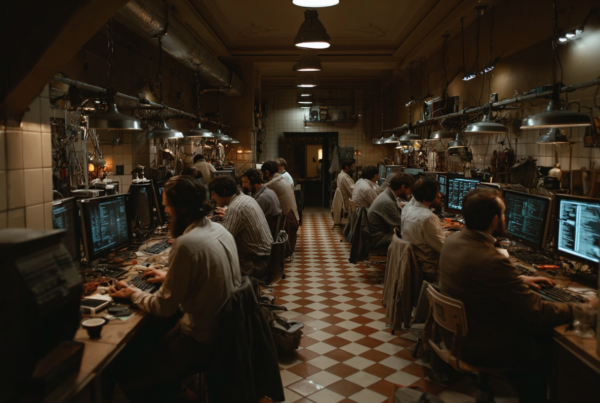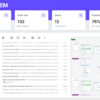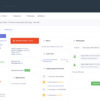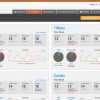Pick any point in human history and you’ll find the same story:
- We invent tools.
- The tools change us.
- We invent again.
👉🏼 A chipped stone flake turned our bare hands into precision hunting and carving instruments.
👉🏼 Fire gave us cooked food, warmth, light, and safety, and rewired our brains in the process.
👉🏼 The plow let us farm at scale, shifting us from nomads to city-builders.
👉🏼 The printing press put knowledge into the hands of anyone who could read.
👉🏼 Industrial machines gave us mass production.
👉🏼 Computers compressed whole industries into silicon.
Each leap changed how we lived, how we worked, and how we thought.
Each time, the tool didn’t just make us better at something. It made us different.
Now we’re here again.
LLMs: a tool that builds tools
When OpenAI released GPT-5 with a heavy emphasis on coding, some saw it as a niche choice.
I did. I didn’t like it. Then I thought harder…
Coding is not the end goal.
Coding is the tool that builds tools.
And what’s different now is this: the number of people who can build tools just exploded.
Until now, building software required years of study, a stack of technical expertise, and often large budgets. That reality put huge limits on who could make tools and what problems they could solve.
Now (or in the very near future)?
- A nurse in rural Kenya can create a patient-tracking system in her own language.
- A small business owner can automate project tracking without hiring a huge dev team.
- A founder can test five product ideas in a weekend without touching a single line of code.
This isn’t a small shift. This is the kind of shift that speeds up human evolution.
The magnitude of the change
If you don’t follow AI closely, here’s the simplest way I can put it:
This is as significant as when humans learned to control fire. 🔥
Before fire: survival was limited by daylight, raw food, and the threat of predators.
After fire: we expanded into new environments, changed our diet, and unlocked time to think, plan, and build culture.
We’re at that kind of inflection point again… except the new “fire” is the ability to build custom tools at will. Cognition on demand. Intelligence as a SaaS subscription.
Before and after
Before LLMs
- Tool-making (modern tools are silicon based) lived almost entirely in the hands of trained developers.
- Turning an idea into a working product required months, teams, and big budgets.
- Many problems went unsolved because the people living with them couldn’t code their way out or afford a solution.
After LLMs
- Tool-making is accessible to anyone with an idea and a willingness to learn.
- Prototypes can appear in hours. Iteration cycles shrink from months to days.
- Tools are now built from perspectives we’ve never had in the mix before.
This isn’t just faster and cheaper. It’s broader. It’s more diverse. We’re about to see tools built for problems no one even recognized outside of the communities who live with them.
Why tool-making is so human
Humans are efficiency-seeking animals.
Our ancestors shaped sticks into spears not because it was fun, but because it meant more food with less risk.
Today’s rules have changed, but the impulse hasn’t. We still build tools to extend our reach, save our energy, and outpace threats.
Now we’ve created a tool that can help us make those tools faster than ever.
A meta tool. A tool that builds tools.
AI.
Why this matters for leaders
If you’re a CEO, this is not about learning to code.
It’s about learning to imagine and manifest tools that solve your problems faster than anyone else.
The leaders who start now will pull ahead because they can:
- Test and kill bad ideas in days, not months.
- Build solutions as soon as a problem is spotted.
- Out-iterate competitors by a wide margin.
Ignore it and you’ll be outpaced by someone with fewer resources but a faster tool-building loop.
A new baseline skill
We treat reading, writing, and math as baseline skills for participating in society.
In the near future, the ability to build tools, or at least to co-create them with an AI, will join that list.
It’s not a question of if. It’s a question of whether you’ll be fluent or dependent.
My take
I’m 95% excited and 5% terrified.
Excited because we’re about to see an explosion of creativity and problem-solving unlike anything in history.
Terrified because those who ignore this shift will be irrelevant faster than they expect… AND well, because humans have a pretty bad track record with things like greed. That’s a whole different article.
If you love tools, if you love efficiency, if you love solving problems, there has never been a better time to lean in.
Whether you’re a developer or a “normie,” the same truth applies:
Learn to use these tools to make your tools.
It’s how you stay relevant.
It’s how you shape the future instead of just living in it.
